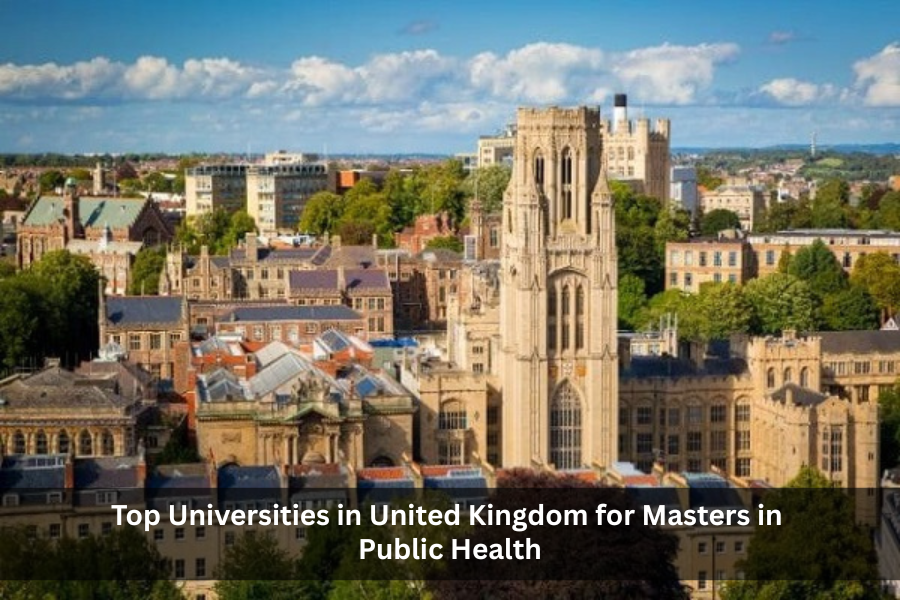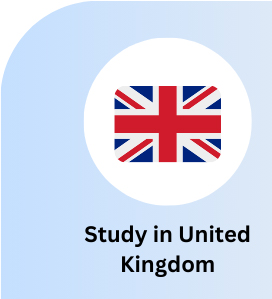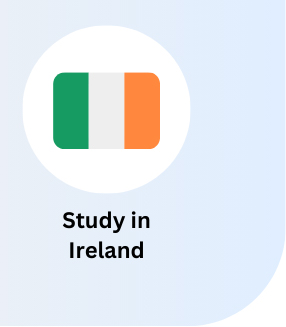
United Kingdom is a top choice for MS in Public Health applicants, offering renowned universities, diverse campuses, and excellent post-study work options. Its high quality of life and career opportunities make it an ideal study destination.
Here is the list of 5 Best MS in Public Health Universities in United Kingdom along with details of their course duration, fee, eligibility requirements and more:
1. University of Bristol (United Kingdom)
The University of Bristol is a red brick Russell Group research university in Bristol, England. It received its royal charter in 1909, although it can trace its roots to a Merchant Venturers’ school founded in 1595 and University College, Bristol, which had been in existence since 1876. Bristol is organised into six academic faculties composed of multiple schools and departments running over 200 undergraduate courses, largely in the Tyndalls Park area of the city. The university had a total income of £682.9 million in 2019–20, of which £151.9 million was from research grants and contracts. It is the largest independent employer in Bristol. Current academics include 21 fellows of the Academy of Medical Sciences, 13 fellows of the British Academy, 13 fellows of the Royal Academy of Engineering and 44 fellows of the Royal Society. Among alumni and faculty, the university counts 9 Nobel laureates. Bristol is a member of the Russell Group of research-intensive British universities, the European-wide Coimbra Group and the Worldwide Universities Network, of which the university’s previous vice-chancellor, Eric Thomas, was chairman from 2005 to 2007. In addition, the university holds an Erasmus Charter, sending more than 500 students per year to partner institutions in Europe. It has an average of 6.4 (Sciences faculty) to 13.1 (Medicine & Dentistry Faculty) applicants for each undergraduate place.
Masters in Public Health (MSc) at the University of Bristol, United Kingdom, offered by the Faculty of Health Sciences, is a 1-year STEM-designated program with tuition fees of £15,900 for domestic students and £32,500 for international students, plus an estimated living expense of £15,000.
2. Bournemouth University (United Kingdom)
Bournemouth University is a public university in Bournemouth, England, with its main campus situated in neighbouring Poole. The university was founded in 1992; however, the origins of its predecessor date back to the early 1900s.
The university currently has over 16,000 students, including over 3,000 international students. The university is recognised for its work in the media industries. Graduates from the university have worked on a number of Hollywood films, including Gravity, which was awarded the Achievement in Visual Effects Oscar at the 86th Academy Awards in 2015.
In 2017 Bournemouth University received a silver rating in the Teaching Excellence Framework, a government assessment of the quality of undergraduate teaching in universities and other higher education providers in England.
Masters in Public Health (MSc) at Bournemouth University, United Kingdom, is offered by the Faculty of Health & Social Sciences as a 1-year STEM-designated program, with living expenses estimated at GBP 15,000, tuition fees of GBP 10,000 for domestic students (approx. $12,700), and GBP 18,000 for international students.
3. University of Manchester (United Kingdom)
The University of Manchester is a public research university in Manchester, England. The main campus is south of Manchester City Centre on Oxford Road. The university owns and operates major cultural assets such as the Manchester Museum, Whitworth Art Gallery, John Rylands Library and Jodrell Bank Observatory—a UNESCO World Heritage Site.
The University of Manchester is considered a red brick university, a product of the civic university movement of the late 19th century. The current University of Manchester was formed in 2004 following the merger of the University of Manchester Institute of Science and Technology (UMIST) and the Victoria University of Manchester. This followed a century of the two institutions working closely with one another.
Masters in Public Health (MPH) at the University of Manchester, offered through the Faculty of Biology, Medicine & Health, is a 1-year STEM-designated program with tuition fees of £13,000 (domestic) and £28,500 (international), plus estimated living expenses of £15,500; the university, a member of the Russell Group, N8 Group, and Universities Research Association, boasts a rich history dating back to 1824, has produced 25 Nobel laureates, and ranks among the UK’s top institutions for research income and endowment.
4. University of Nottingham (United Kingdom)
The University of Nottingham is a public research university in Nottingham, United Kingdom. It was founded as University College Nottingham in 1881 and was granted a royal charter in 1948. The University of Nottingham belongs to the elite research-intensive Russell Group association.
Nottingham’s main campus (University Park) with Jubilee Campus and teaching hospital (Queen’s Medical Centre) are located within the City of Nottingham, with a number of smaller campuses and sites elsewhere in Nottinghamshire and Derbyshire. Outside the UK, the university has campuses in Semenyih, Malaysia, and Ningbo, China. Nottingham is organized into five constituent faculties, within which there are more than 50 schools, departments, institutes, and research centers. Nottingham has about 45,500 students and 7,000 staff and had an income of £694 million in 2020–21, of which £114.9 million was from research grants and contracts. The institution’s alumni have been awarded 3 Nobel Prizes, a Fields Medal, a Turner Prize, and a Gabor Medal and Prize. The university is a member of the Association of Commonwealth Universities, the European University Association, the Russell Group, Universitas 21, Universities UK, the Virgo Consortium, and participates in the Sutton Trust Summer School program as a member of the Sutton 30.
Masters in Public Health (MPH) at the University of Nottingham, United Kingdom, offered by the Faculty of Medicine & Health Sciences, is a 1-year STEM-designated program with tuition fees of GBP 11,200 for domestic students and GBP 27,100 for international students, plus estimated living expenses of GBP 15,000.
5. Keele University (United Kingdom)
Keele University, officially known as the University of Keele, is a public research university in Keele, approximately three miles (five kilometres) from Newcastle-under-Lyme, Staffordshire, England. Founded in 1949 as the University College of North Staffordshire, Keele was granted university status by Royal Charter in 1962.
Keele occupies a 625-acre (253-hectare) rural campus close to the village of Keele and consists of extensive woods, lakes and Keele Hall set in Staffordshire Potteries. It has a science park and a conference centre, making it the largest campus university in the UK. The university’s School of Medicine operates the clinical part of its courses from a separate campus at the Royal Stoke University Hospital. The School of Nursing and Midwifery is based at the nearby Clinical Education Centre.
Masters in Public Health (MPH) at Keele University, offered by the Faculty of Medicine & Health Sciences, is a 1-year STEM-designated program with tuition fees of GBP 9,100 (domestic) and GBP 16,600 (international), plus estimated living expenses of GBP 16,000.
If you’re planning to study in United Kingdom, check out our comprehensive guide covering everything you need to know from top universities and popular programs to career prospects, tuition fees, cost of living, scholarships, visas, and more.
 |
 |
 |
 |
 |
 |
 |
 |
